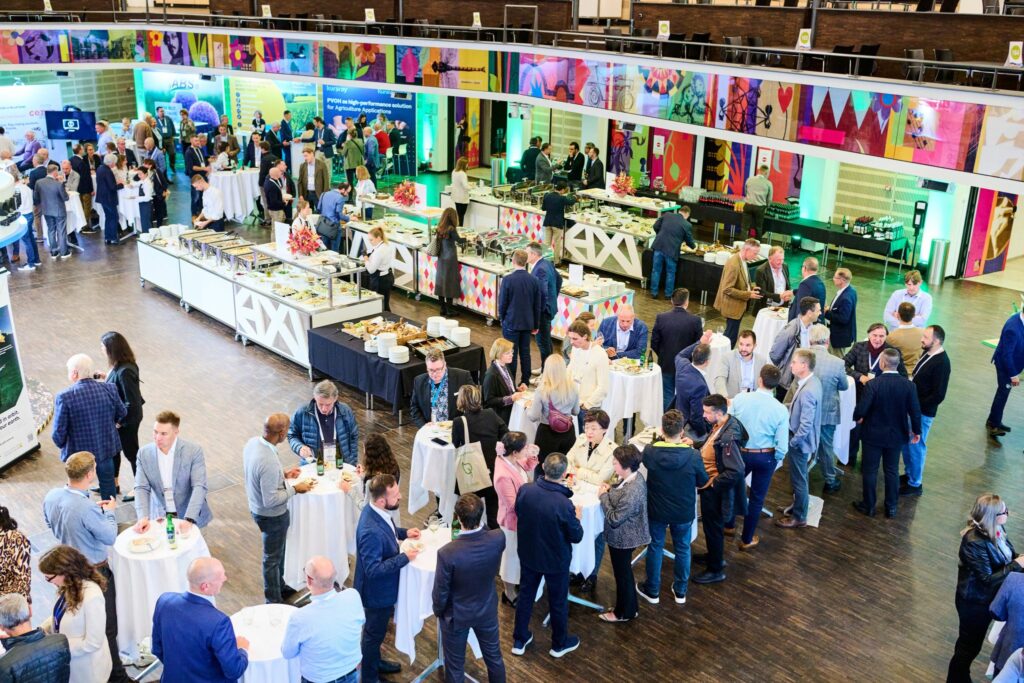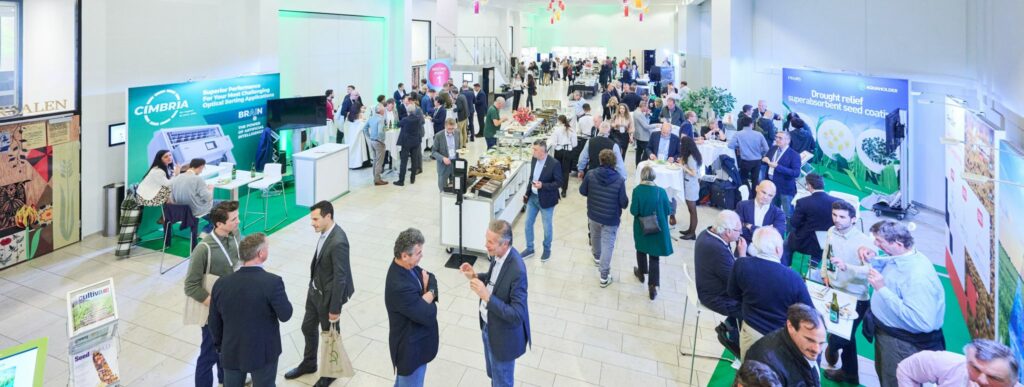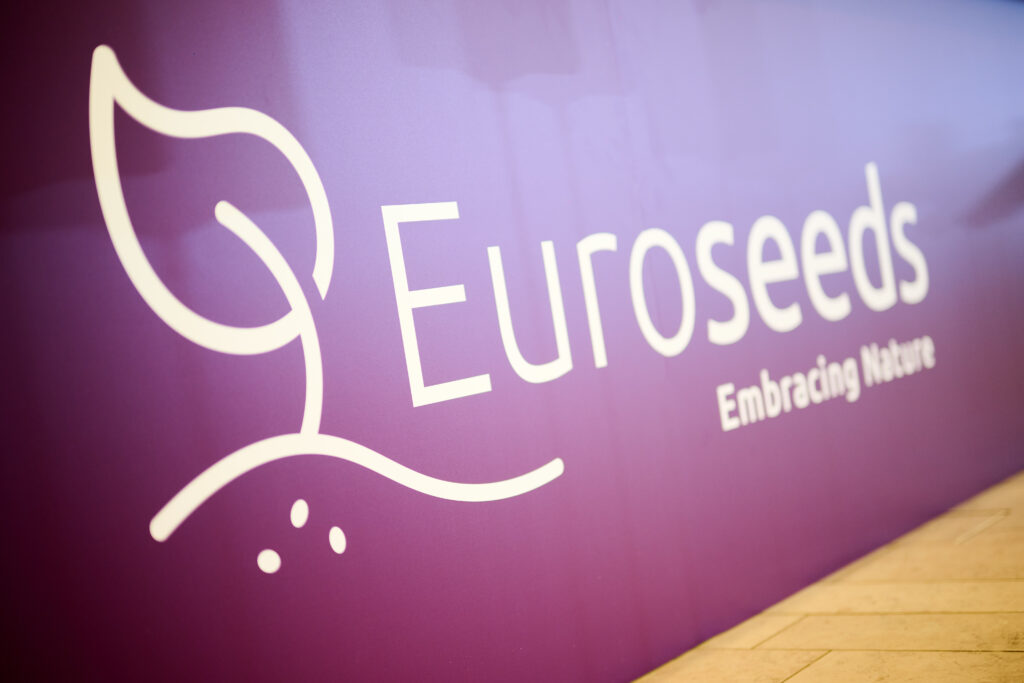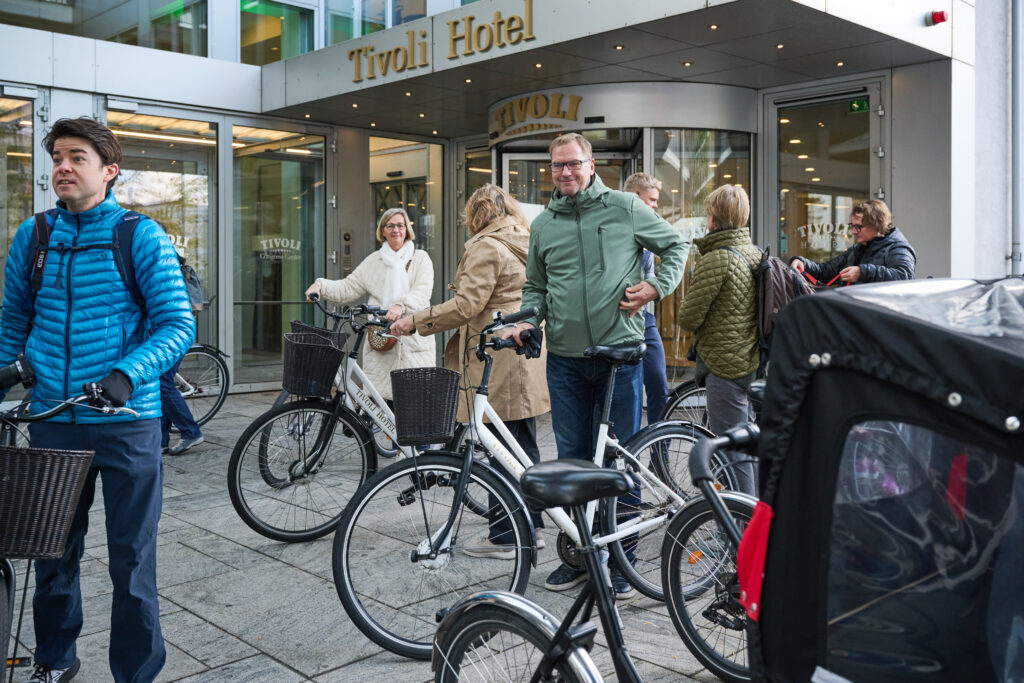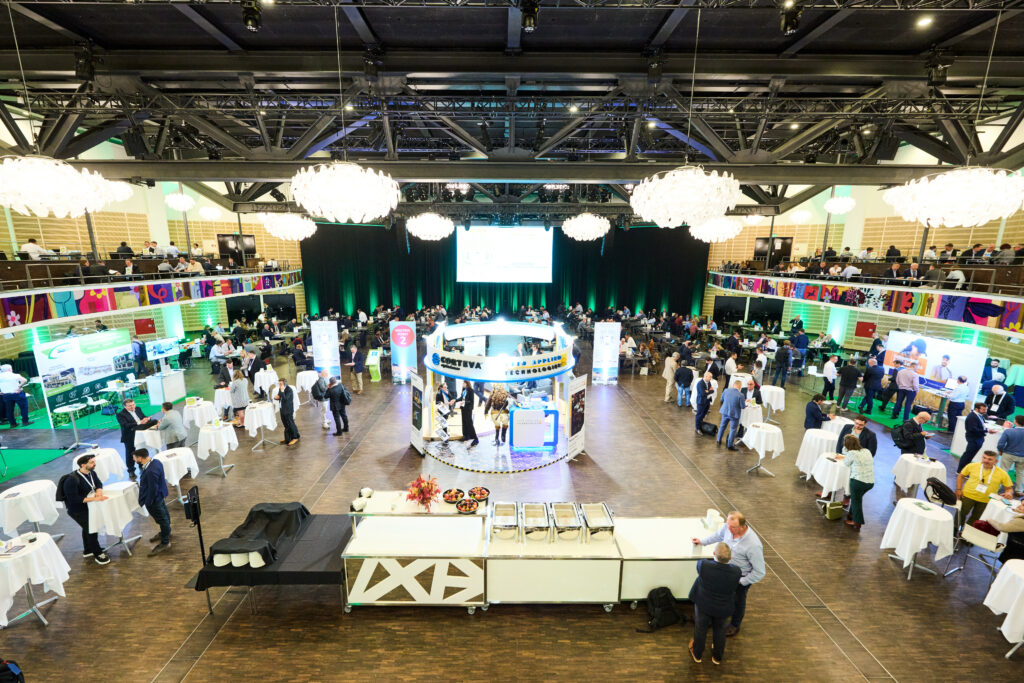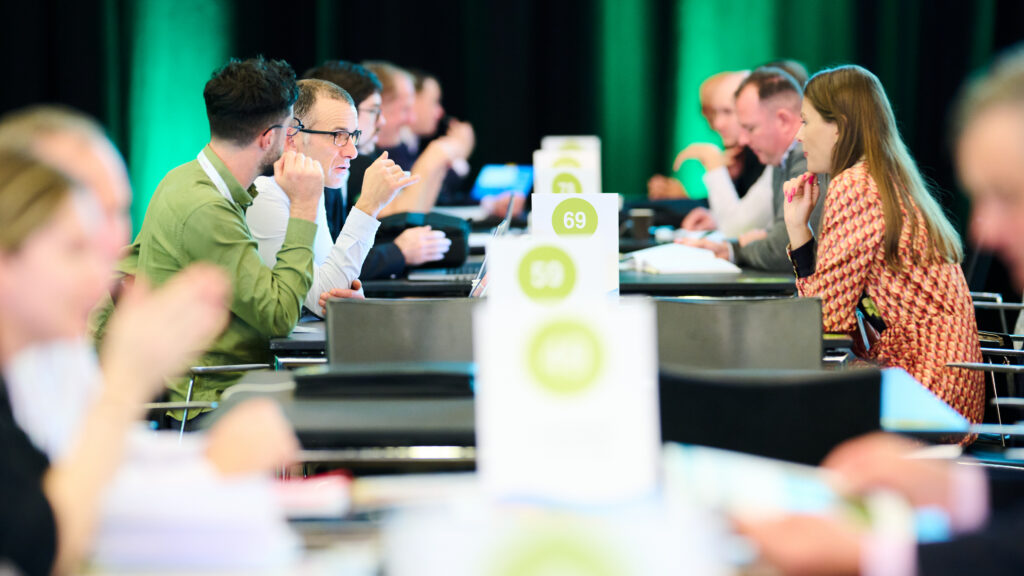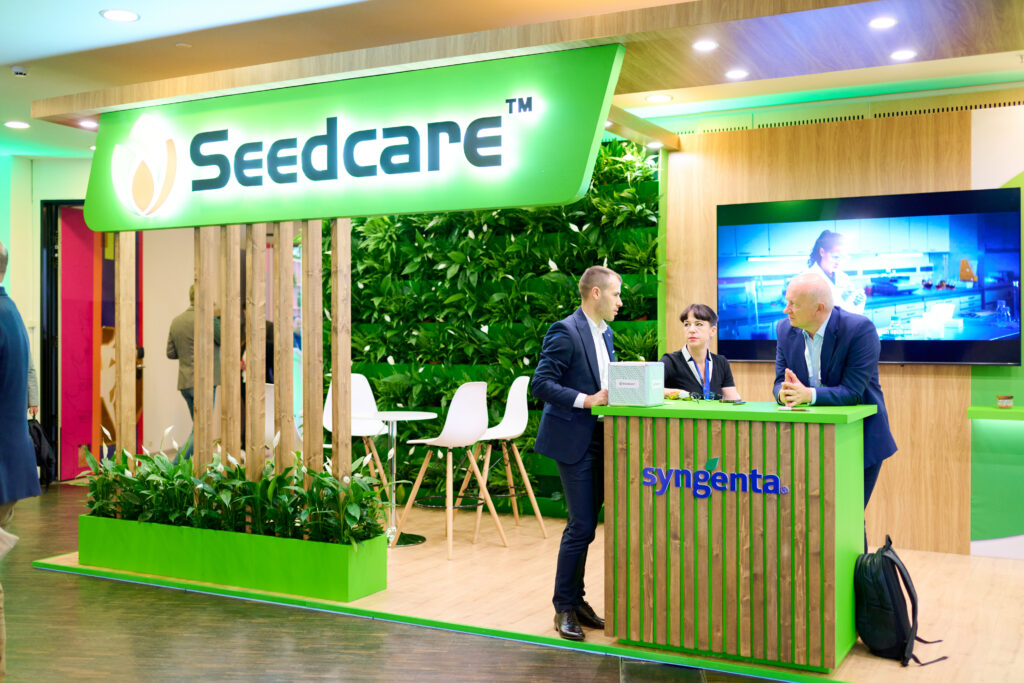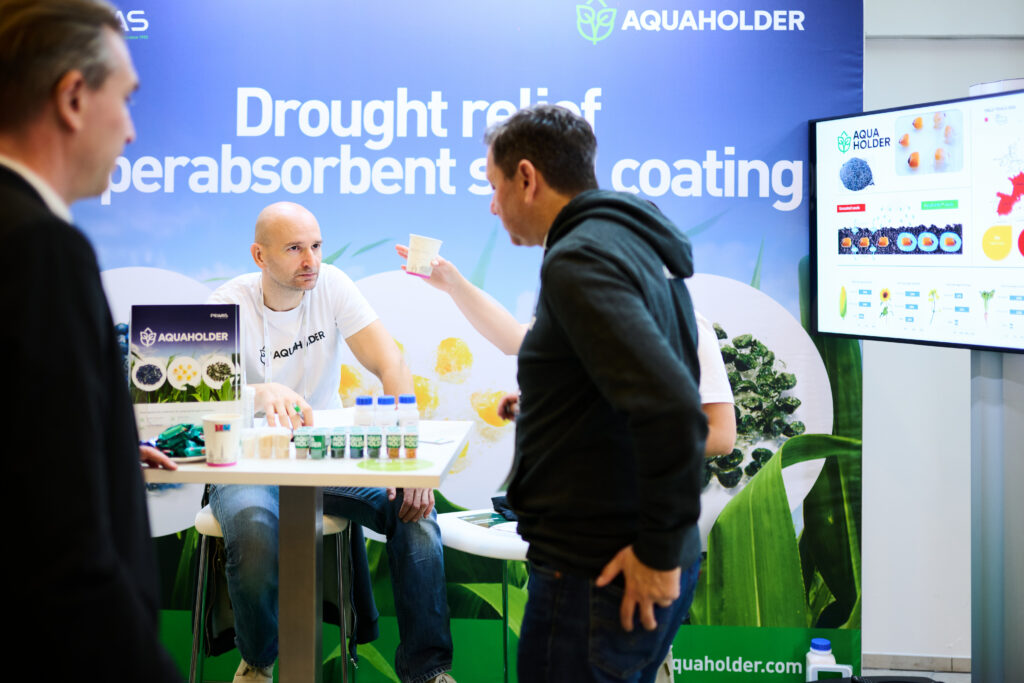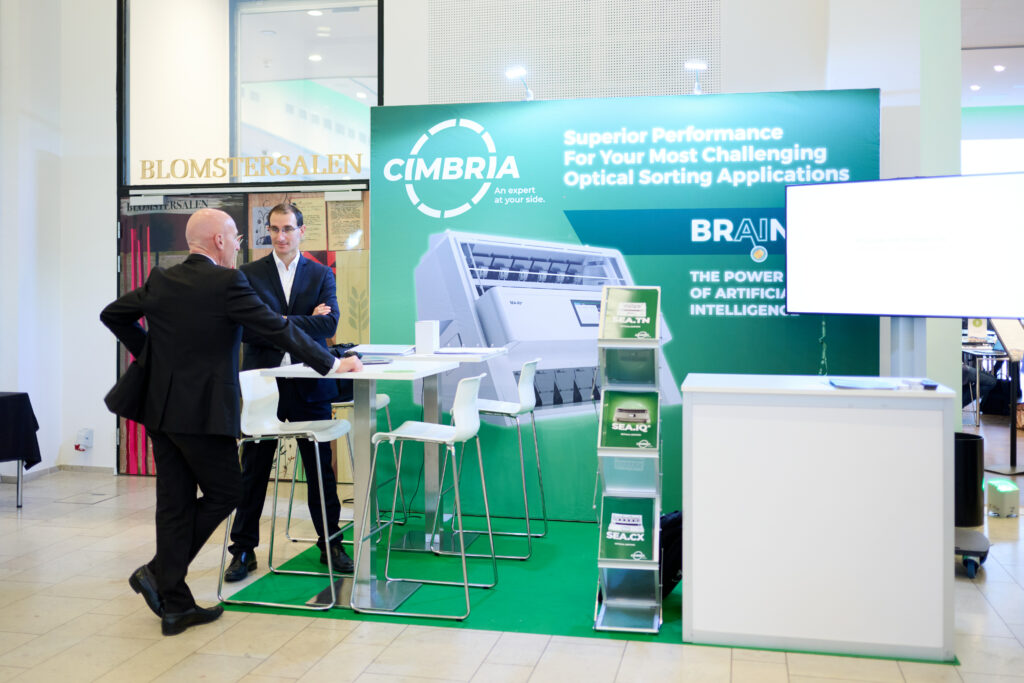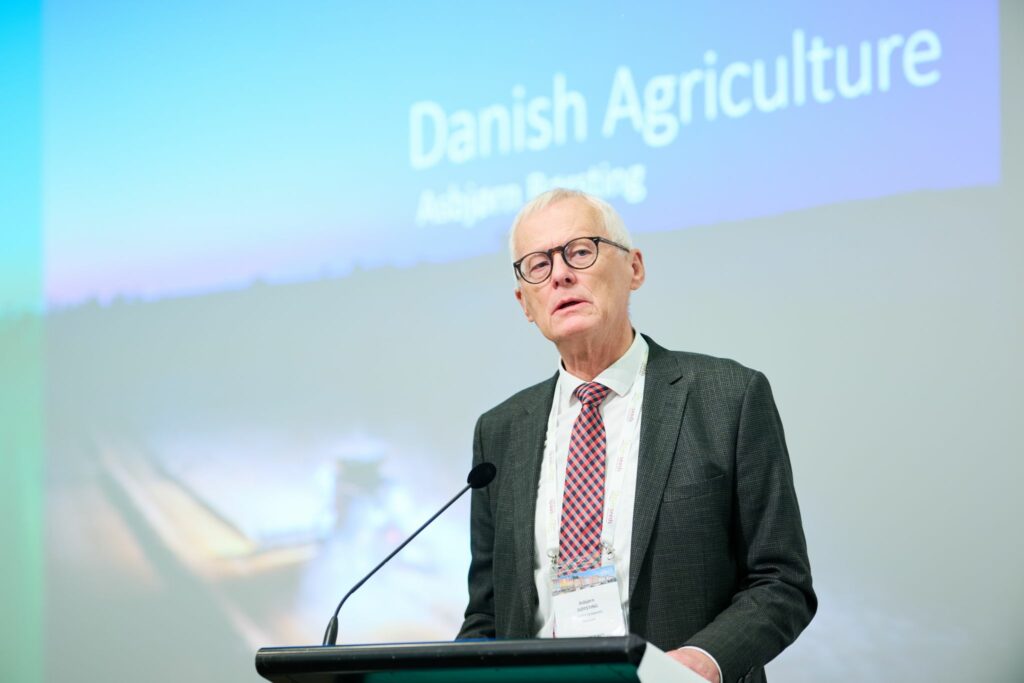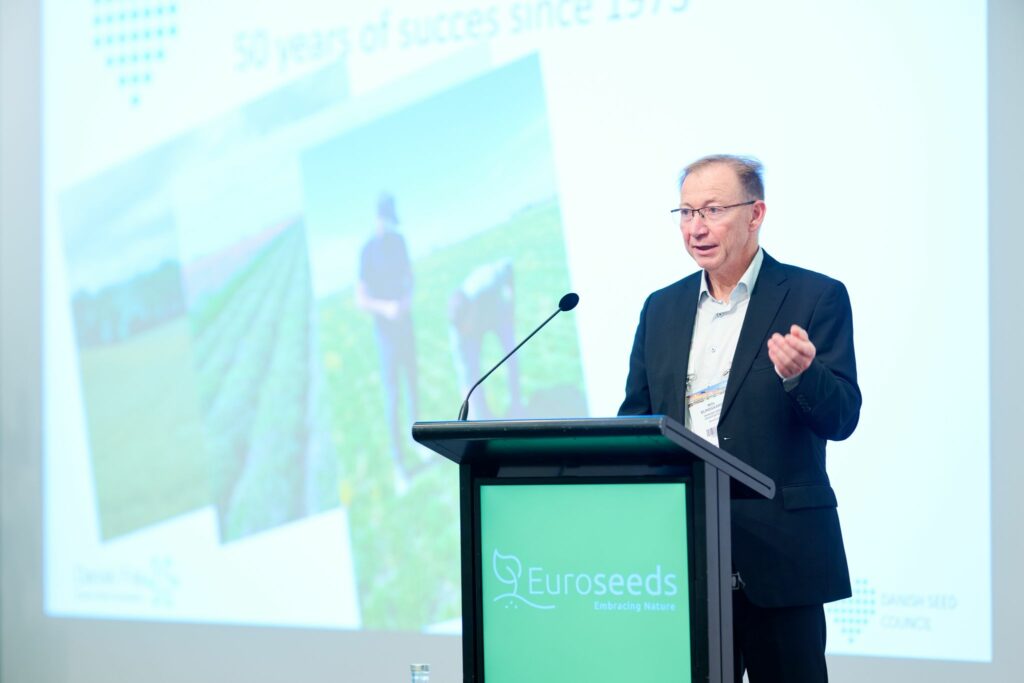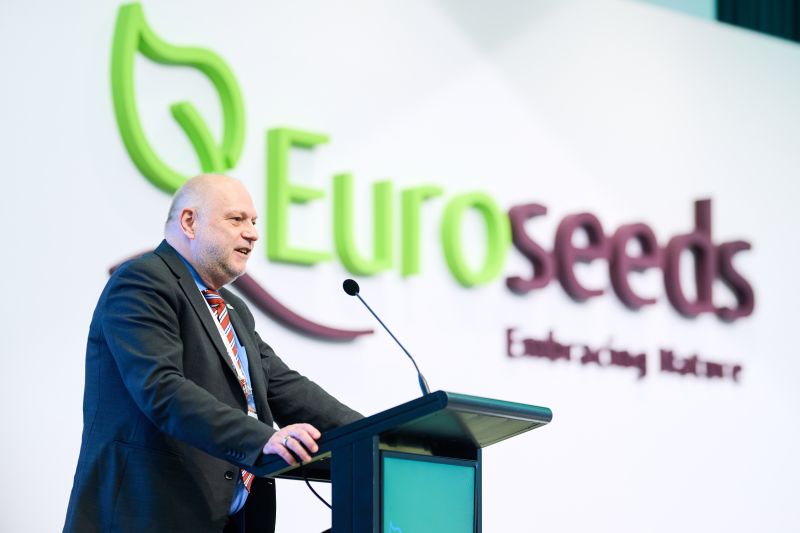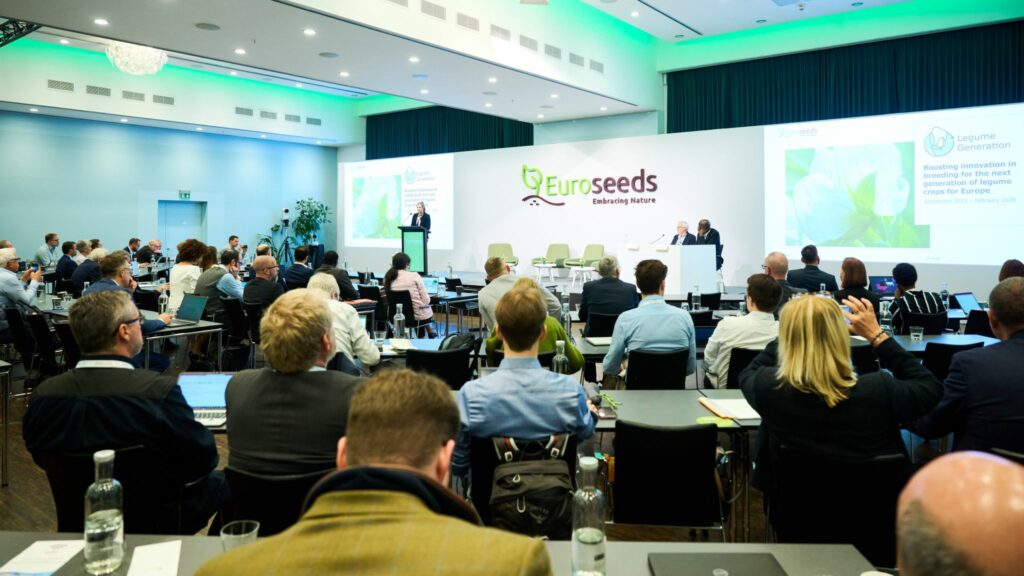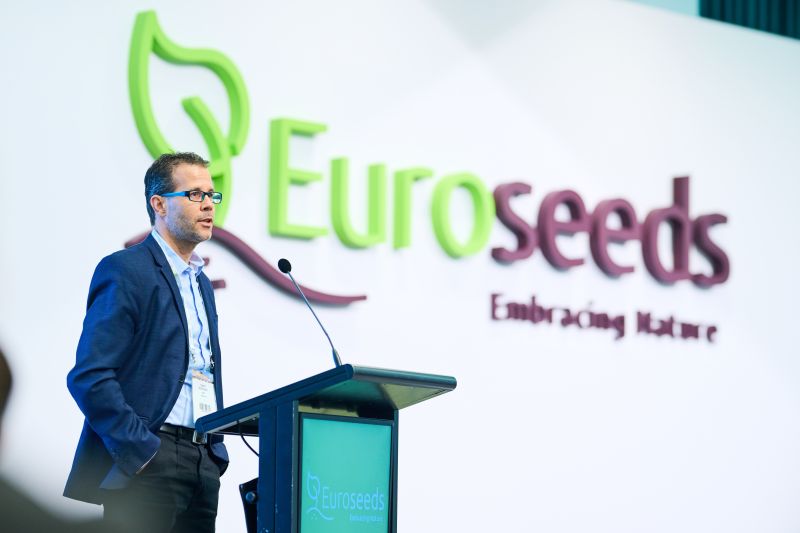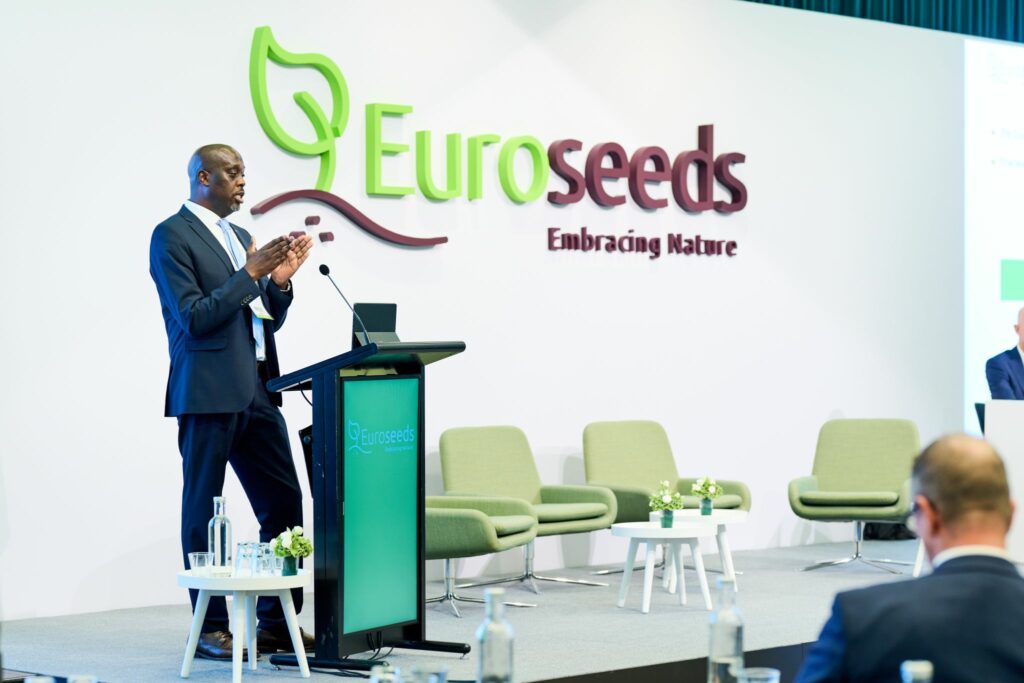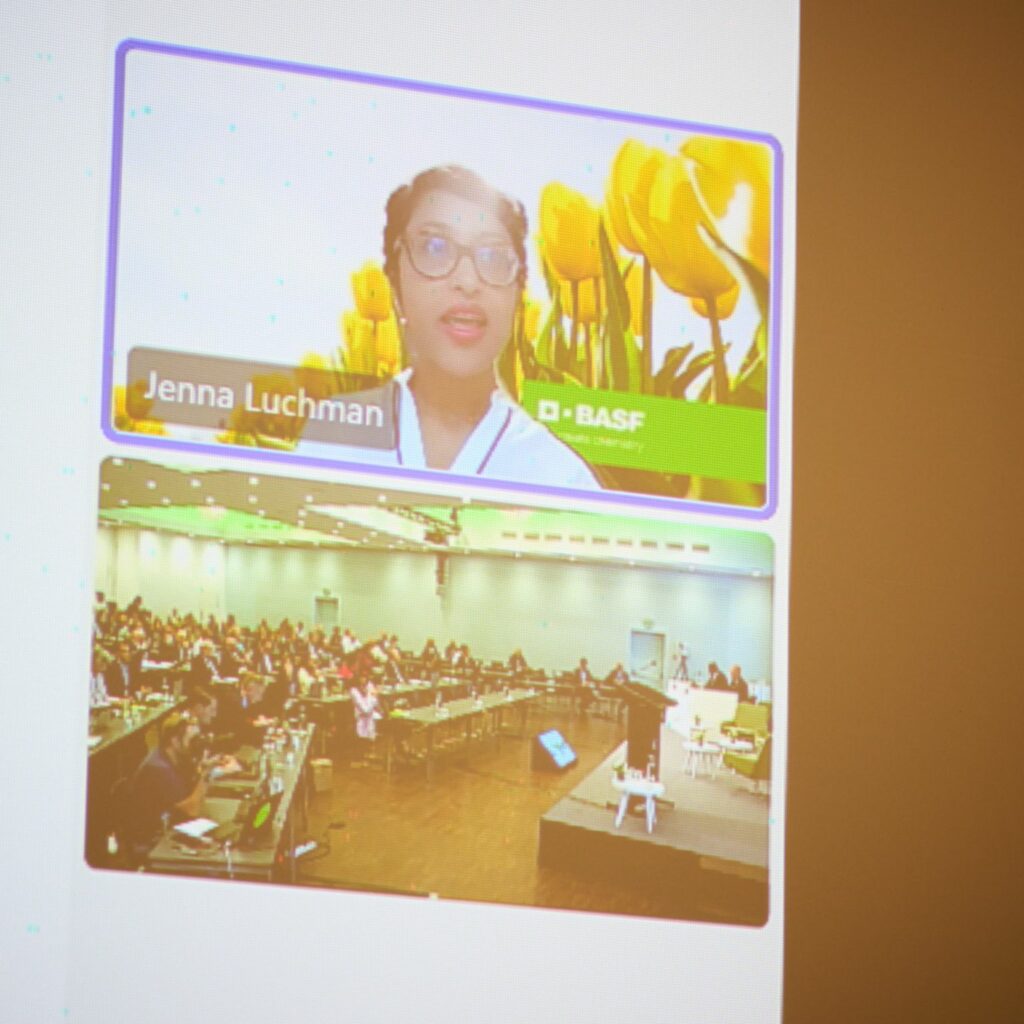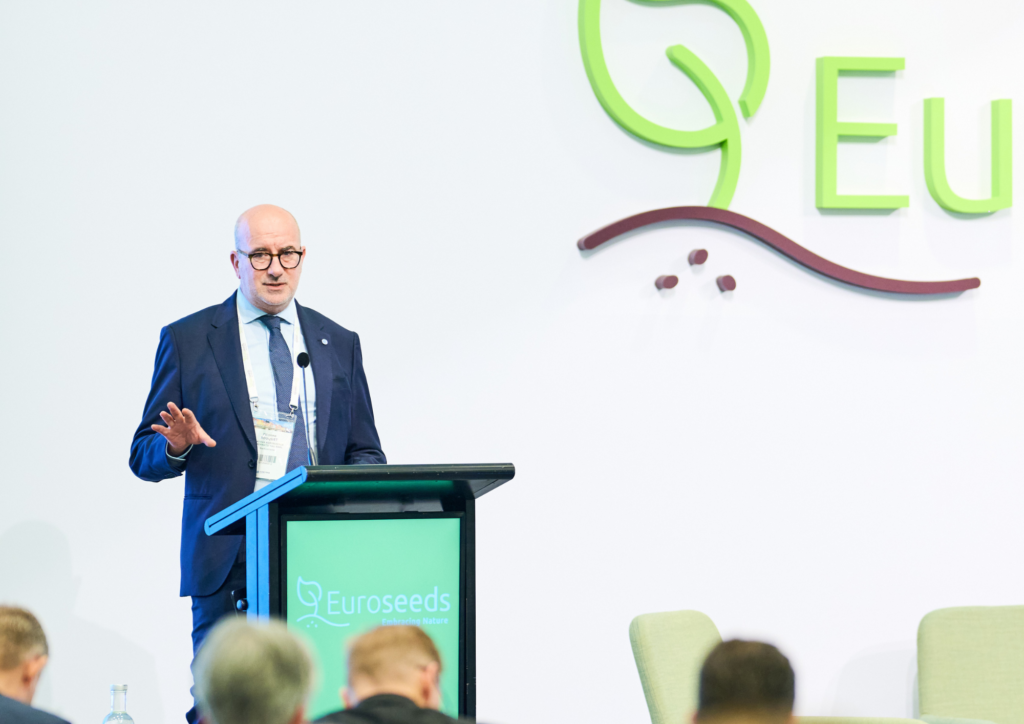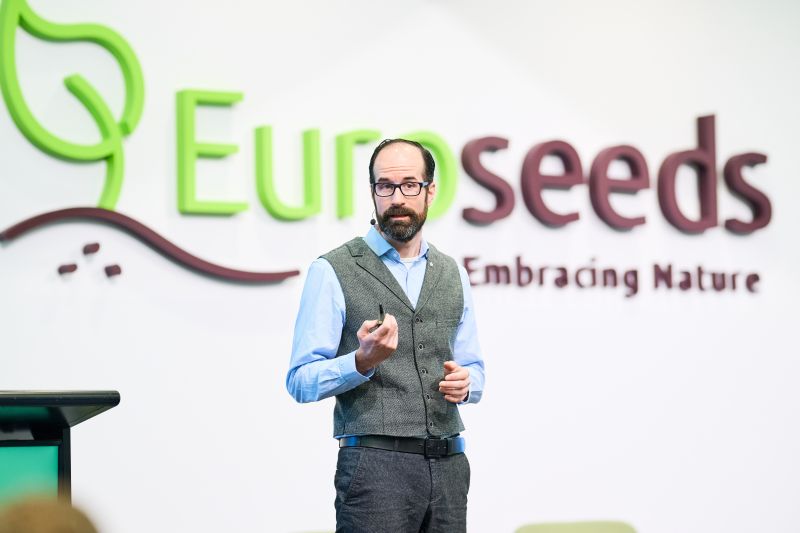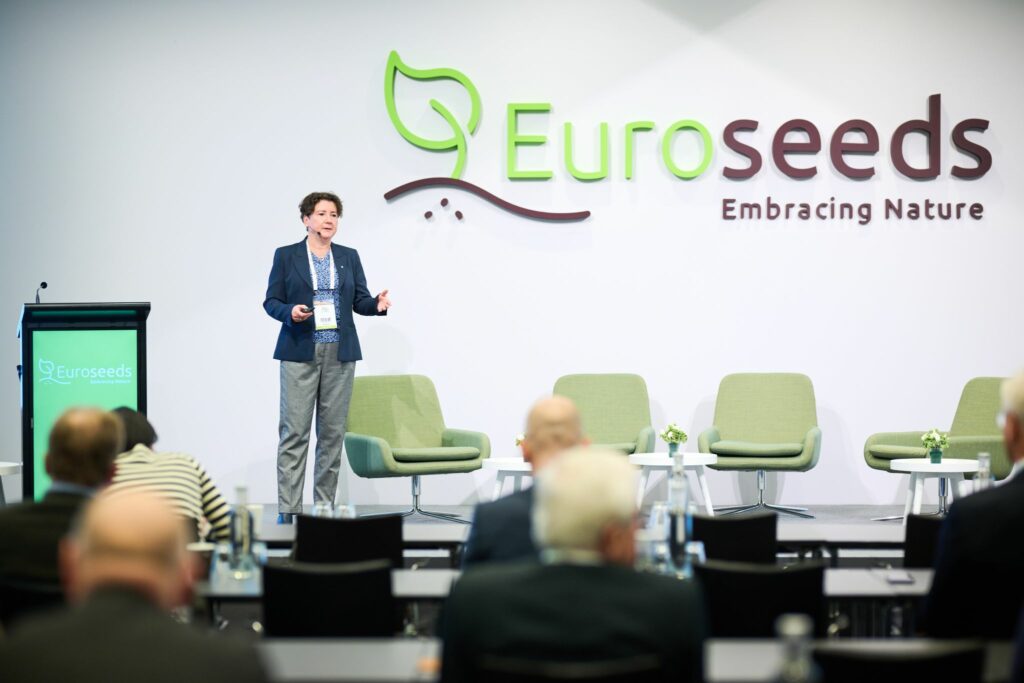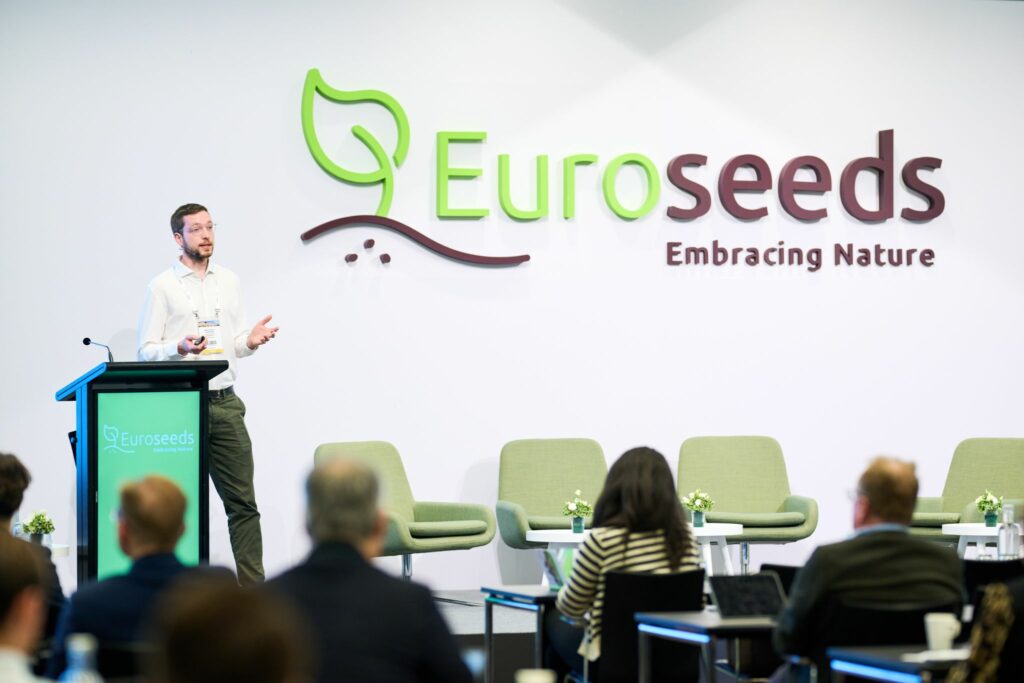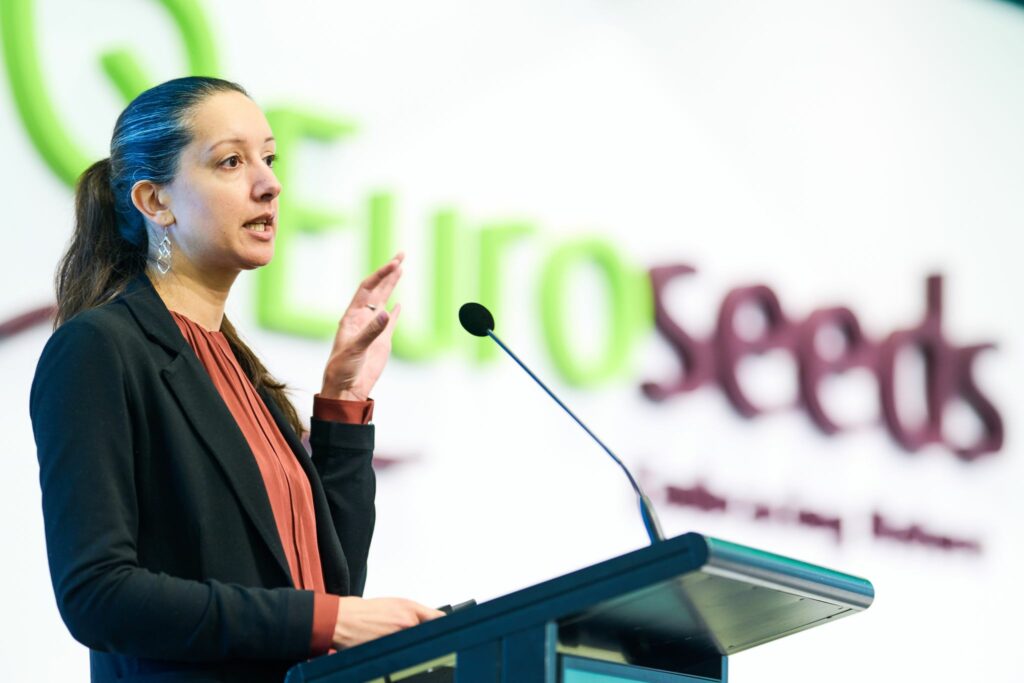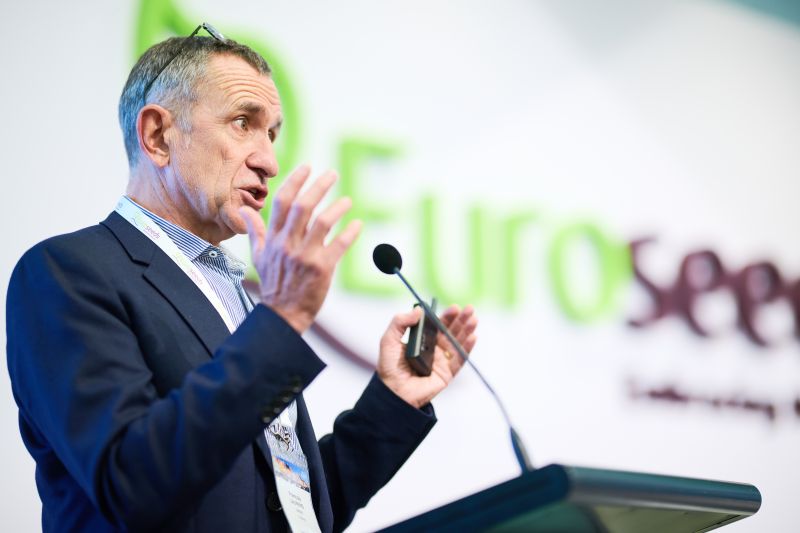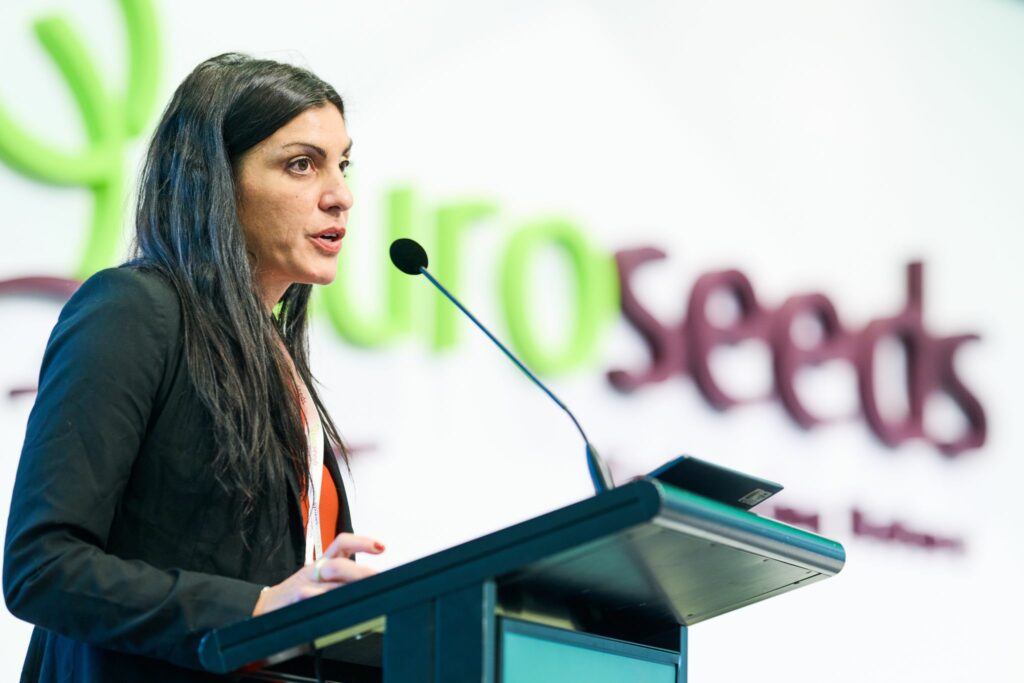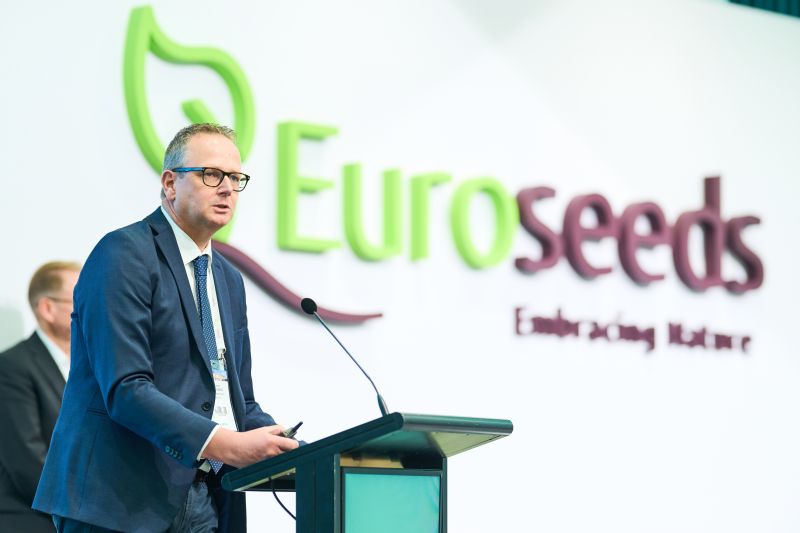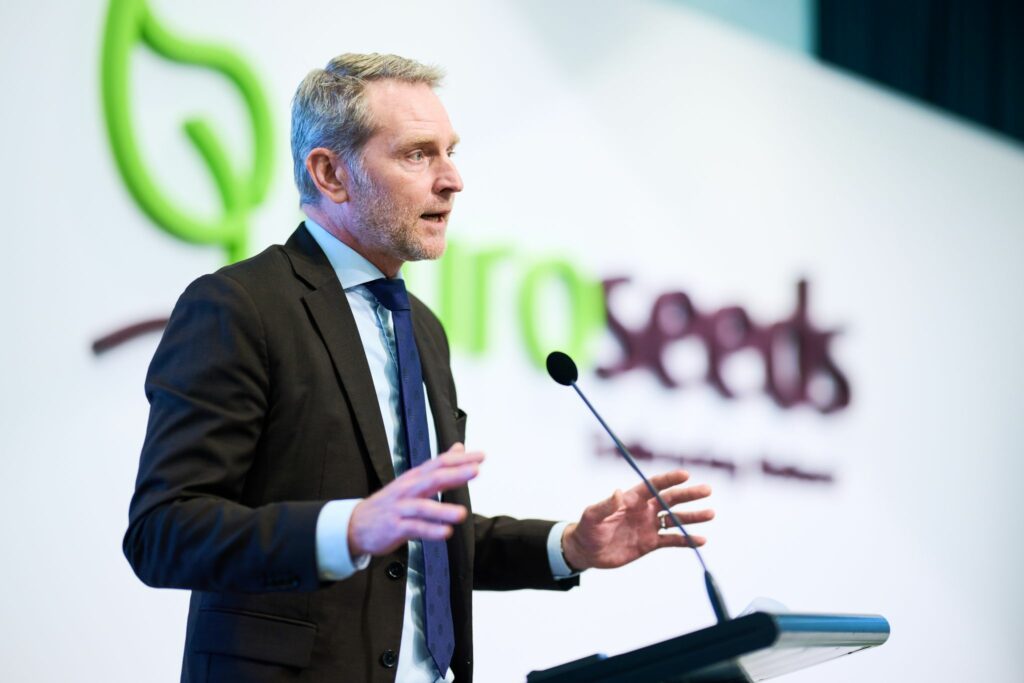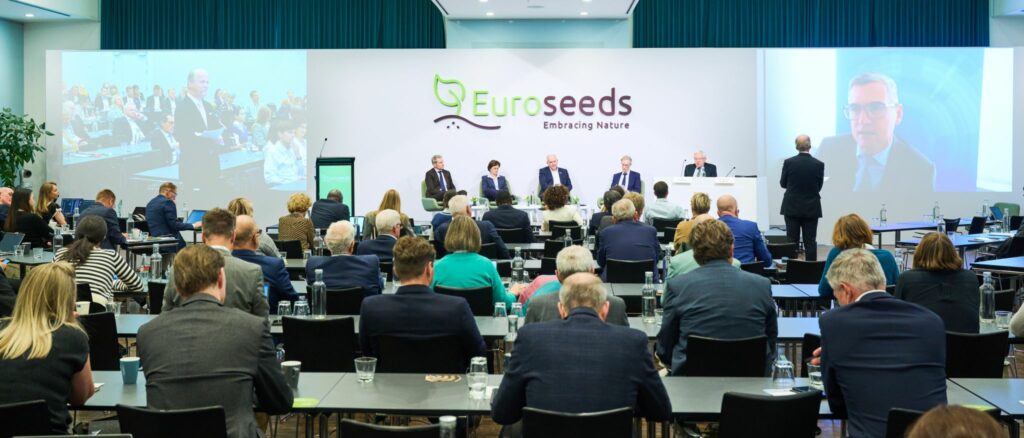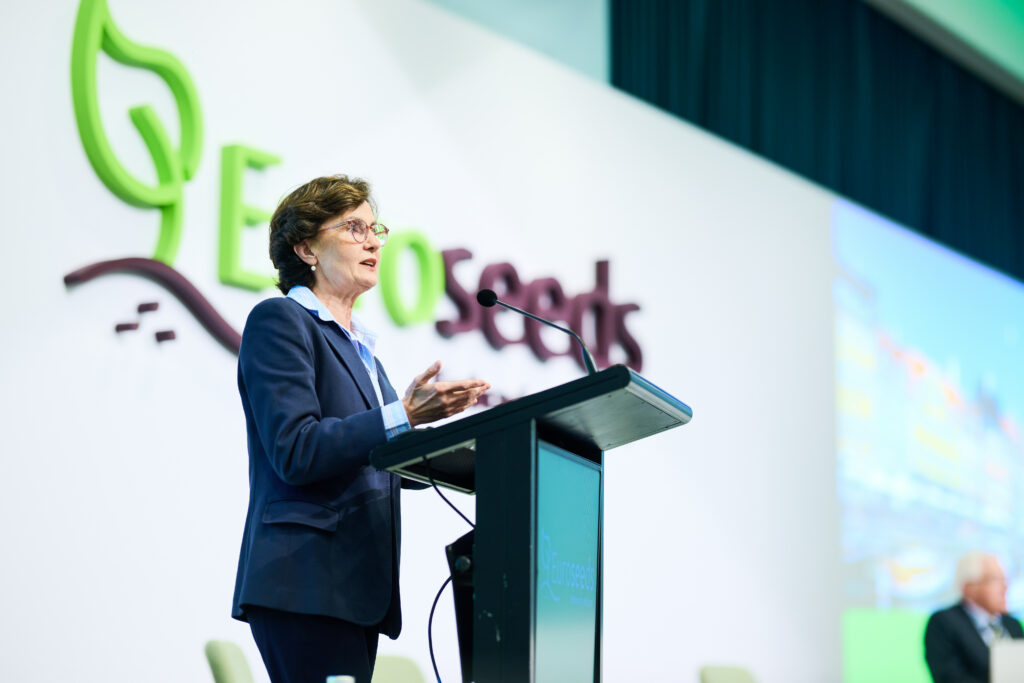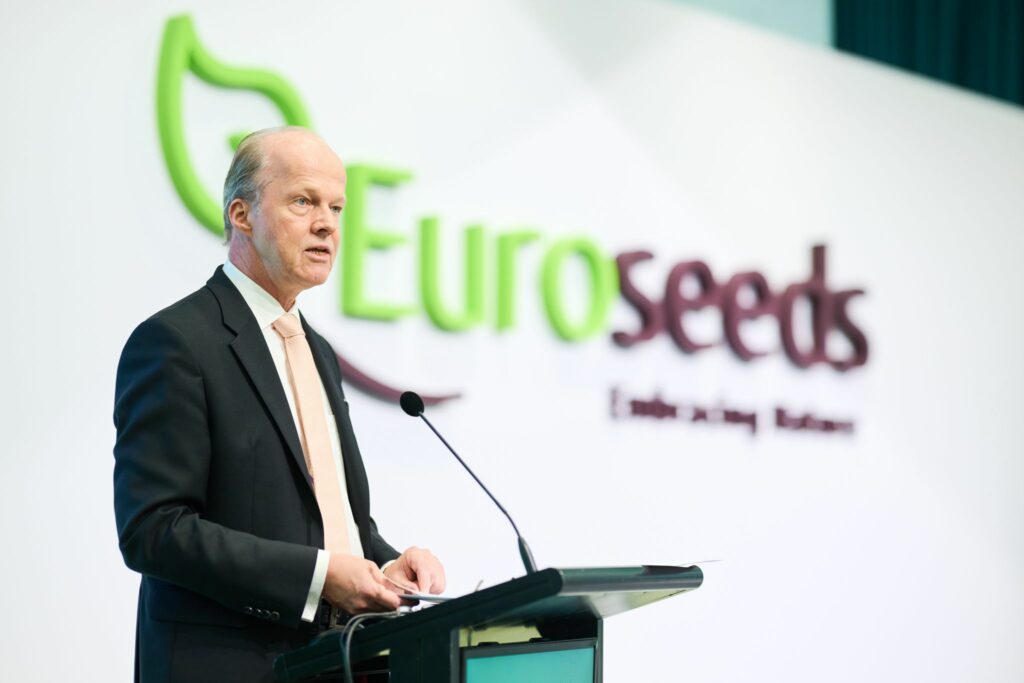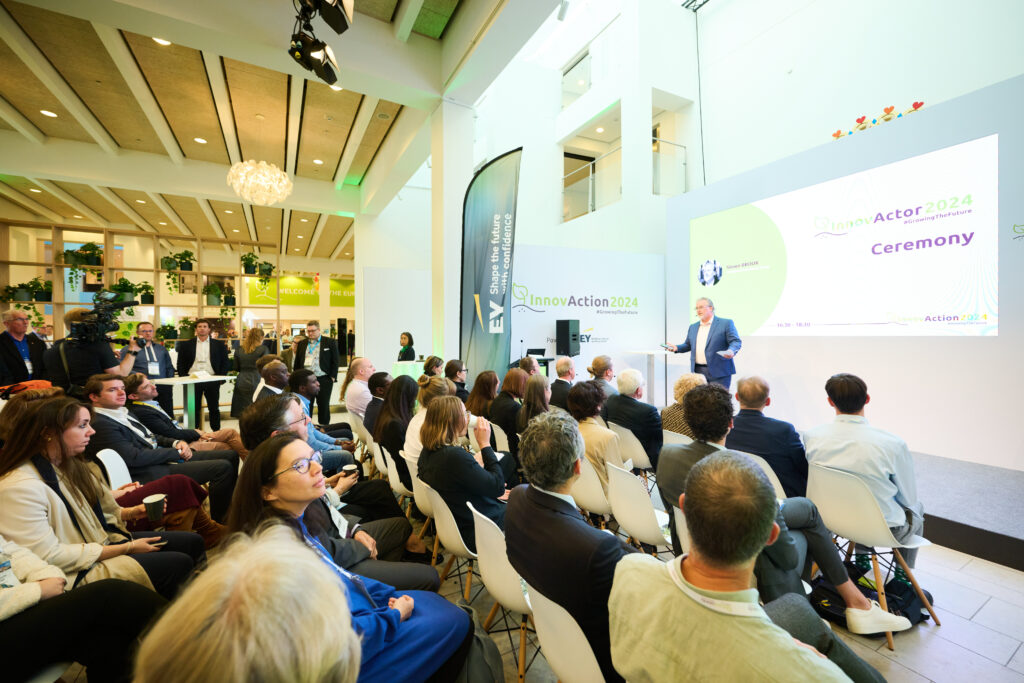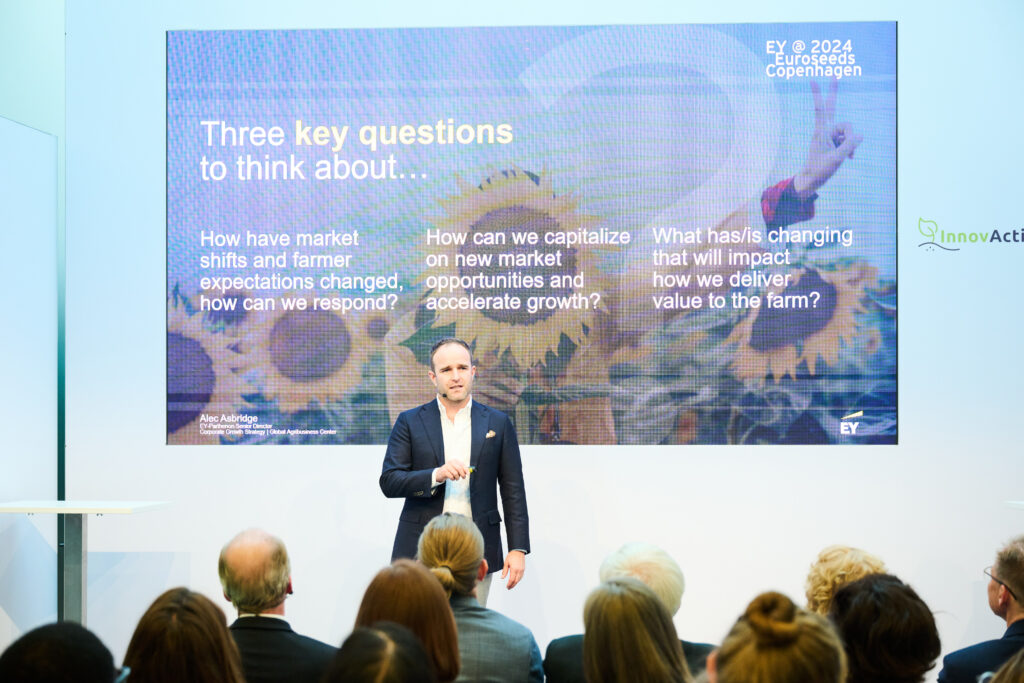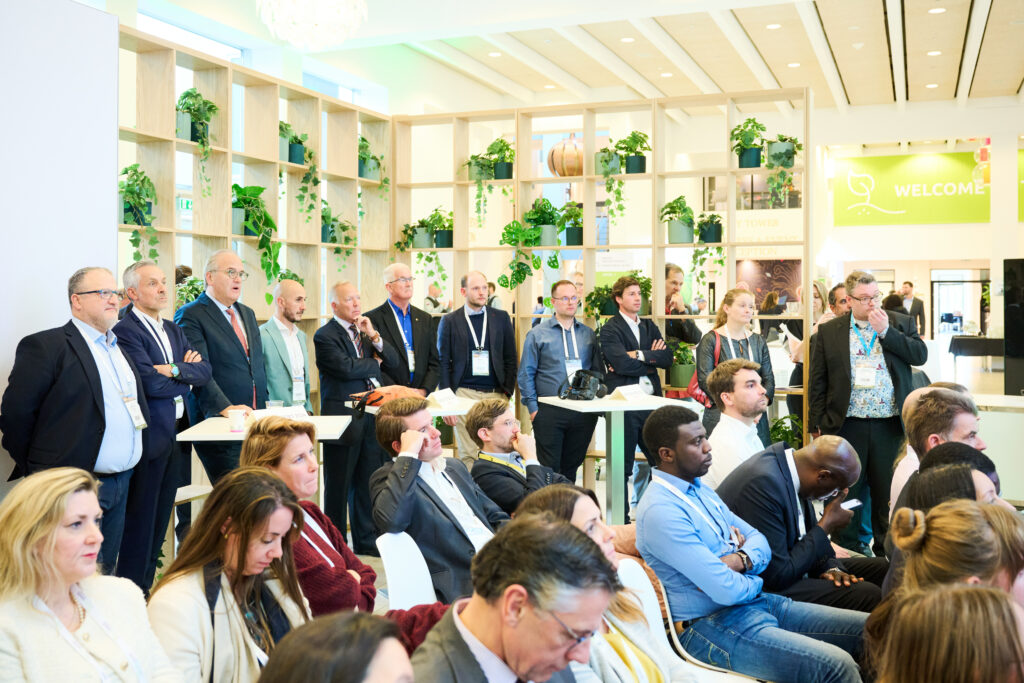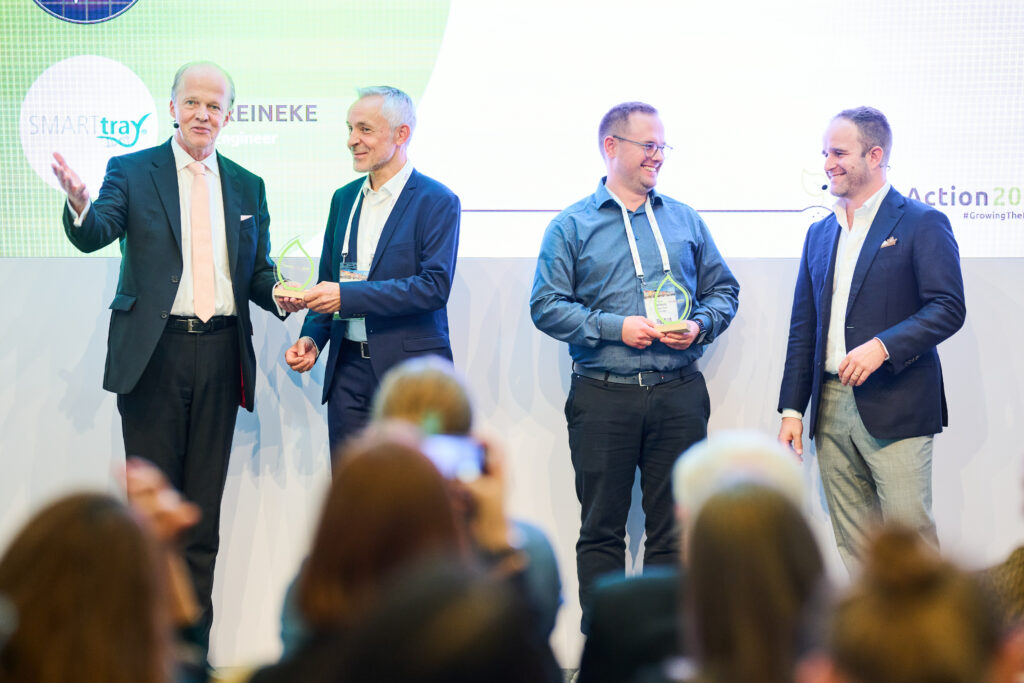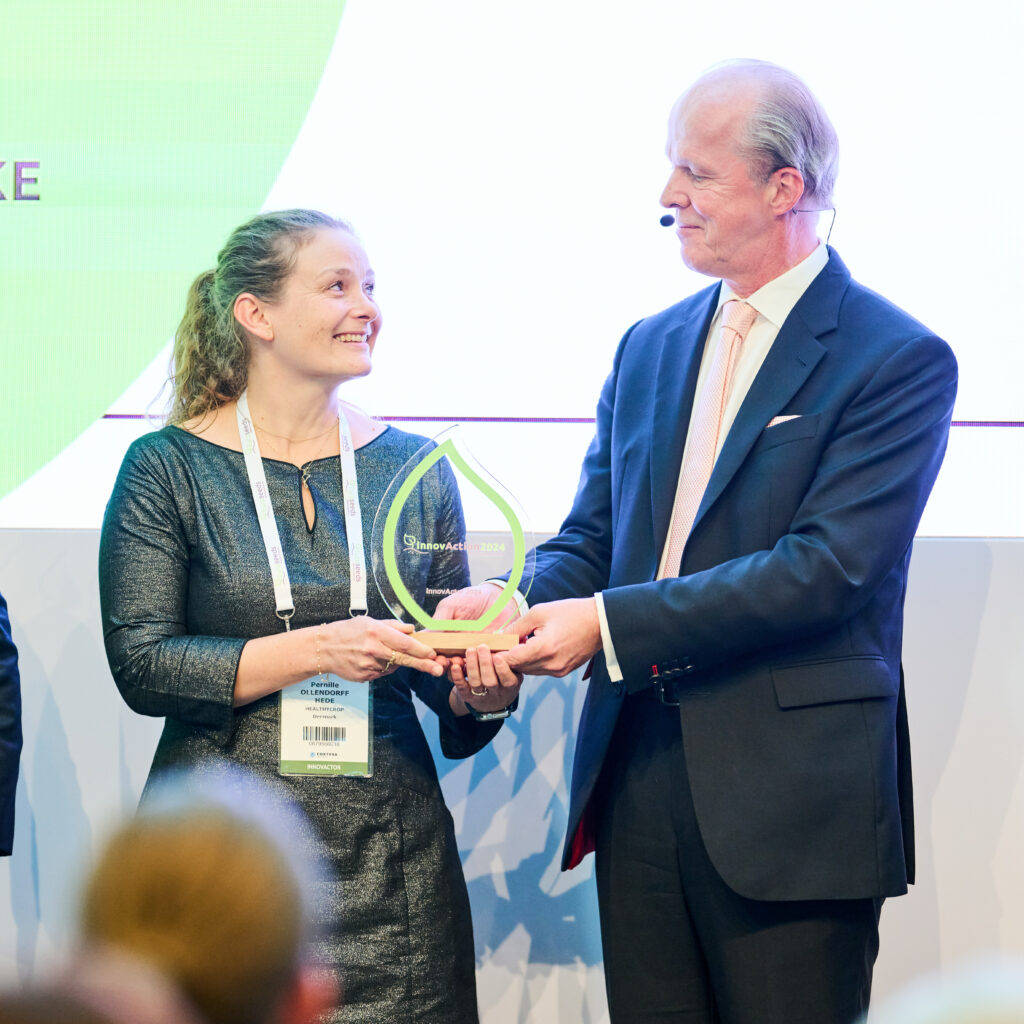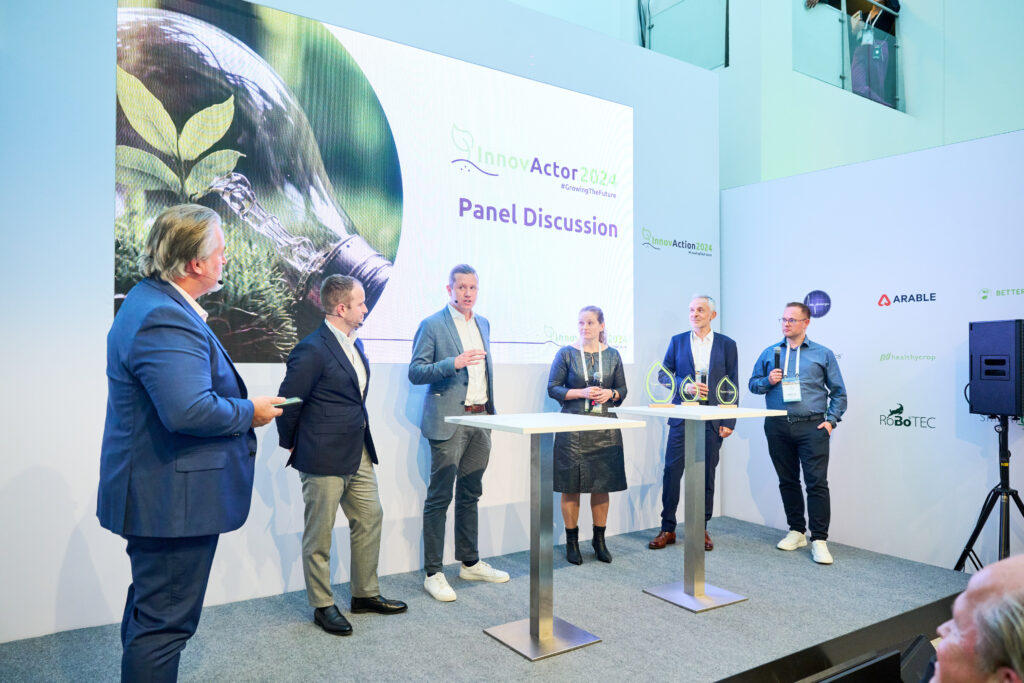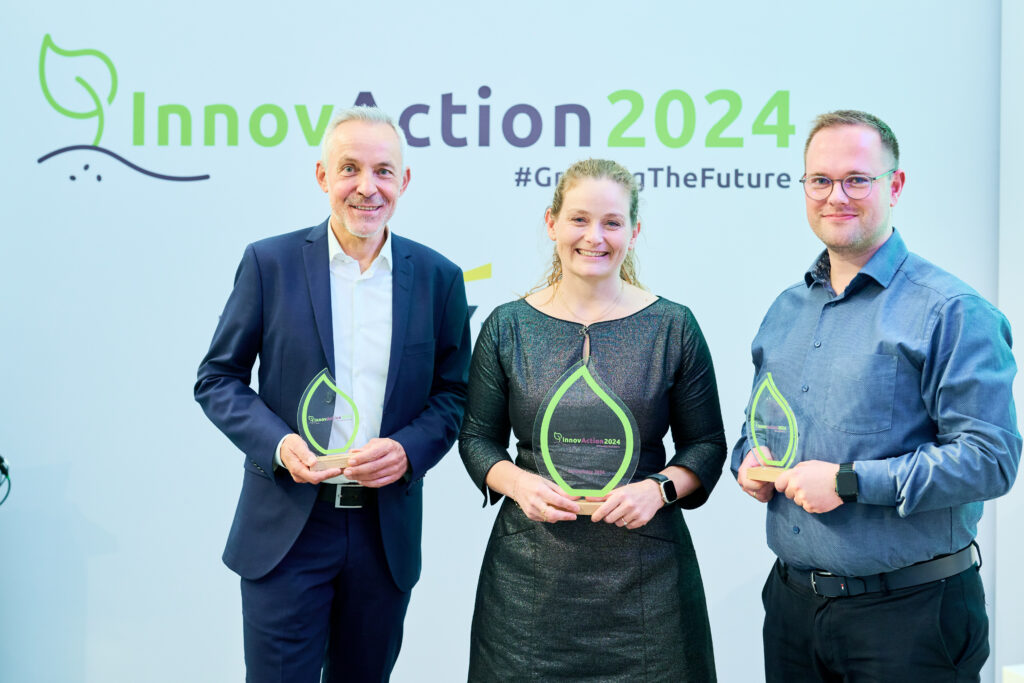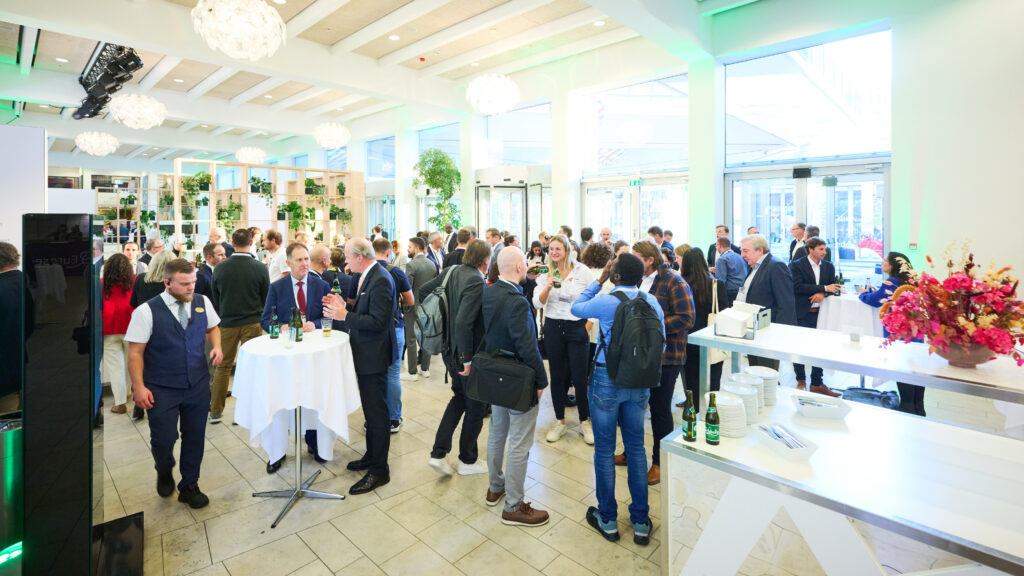The #Euroseeds2024 Congress kicked off at the Tivoli Hotel in Copenhagen, gathering almost 1300 industry professionals, 50 exhibitors, 1000 traders from over 60 countries for three days to do business and discuss critical issues in the European seed sector.
The well-equipped facilities of the Tivoli filled the trade and exhibition spaces of our annual event, offering businesses a platform to showcase a wide range of innovations. These include the latest advancements in technical equipment and mechanical components, cutting-edge processing technologies, and state-of-the-art plant breeding software.
The first day of the congress began with a speech by Asbjørn Børsting, from DAKOFO, who presented an overview of Danish agriculture, highlighting the Green Agreement 2024 and emphasizing the potential of plant breeding to reduce carbon emissions. Nils Elmegaard from the Danish Agriculture and Food Council and Danish Seed Association discussed developments in the Danish seed sector, focusing on major seed crops and new varieties emerging due to climate change.
Andreas Wais from the International Seed Testing Association (ISTA) introduced new e-certificates, emphasizing their efficiency, security, and cost-effectiveness. Dr. Amelie Detterbeck from Euroseeds presented insights from the Horizon Europe project LegumeGeneration, which aims to boost legume breeding to support the European Protein Strategy.
Szabi Ruthner from BASF Agricultural Solutions reported on the Working Group Cereal Hybrid Crops, addressing regulatory frameworks for hybrid cereals. Jared Onsando from Euroseeds discussed the new EU Plant Reproductive Material (PRM) Regulation, focusing on dynamic conservation and heterogeneous material.
The congress continued with a spotlight on the new EU PRM regulations, concerning dynamic conservation and small packaging. Another hot topic was the EU Deforestation Regulation (EUDR), specially regarding the efforts to reduce deforestation driven by EU imports, and the potential impact of the EU draft regulation on packaging and waste management.
Jenna Luchman from BASF Agricultural Solutions addressed the EU draft regulation on packaging and waste management and its potential impact on seed packaging. Etienne Bouquet from Corteva Agriscience provided an update on the EU Deforestation Regulation.
The congress also highlighted innovation in biologicals, as highlighted in presentation of Patrick Kabouw from Novonesis, particularly about the challenges in the EU regulatory framework for pesticides and the future potential for biological solutions.
Intellectual property was another crucial focus, and Francesca Garbato, Intellectual Property and Legal Affairs Manager at Euroseeds, presented a new view on intellectual property for the breeding sector. Nuria Urquia Fernandez from the Community Plant Variety Office (CPVO) and Yolanda Huerta from the International Union for the Protection of New Varieties of Plants (UPOV) discussed challenges and developments in plant variety rights systems.
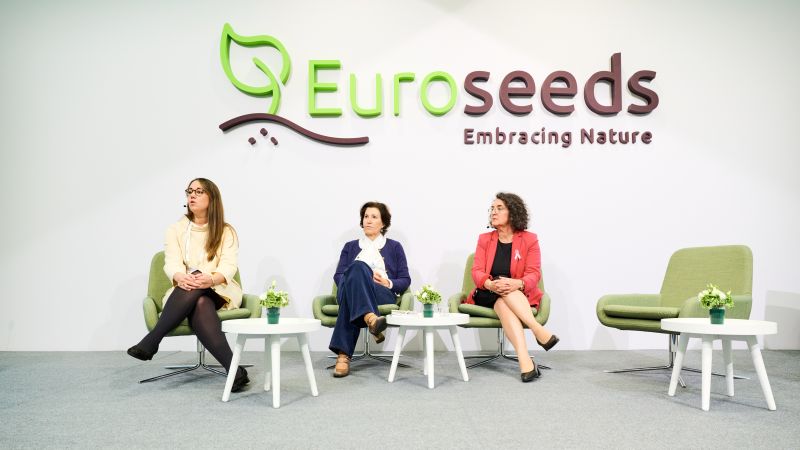
The congress also covered market trends for various crops, including corn, sorghum, oilseed rape, sunflower, soybean, and hemp, highlighting production volumes, yield perspectives, and market challenges.
Petra Jorasch from Euroseeds explained the EU legislative procedure for NGTs and the sector’s efforts to push back against attempts to reintroduce GMO-like requirements. Kardung Max from Wageningen University & Research presented findings from the GeneBEcon and DETECTIVE projects, proposing regulatory options for NGTs.
Amrit Kaur Nanda from Plants for the Future discussed trends in EU public investment in plant breeding research and innovation, calling for dedicated support in the next EU R&I Framework Programme. François Laurens from INRAE presented the main outputs of the INVITE project, which aims to improve variety testing efficiency and quality.
Afterwards, Corné van Beers from Breeders Trust outlined strategies to combat illegal seed practices, while Aurelia Nicault, OECD Programme Officer, presented initiatives to strengthen seed certification in developing countries, particularly in Africa, emphasizing the importance of capacity building.
Later on, Morten Boje Hviid, Director of Policy, Sustainability, and Communication Danish Agriculture and Food Council concluded the session with insights into Denmark’s approach to achieving the Green Agreement, emphasizing collaboration between public institutions and private organizations in driving sustainability forward.
The congress concluded with a panel debate featuring Catherine Geslain-Lanéelle, Yves Madre from FARM EUROPE, Herbert Dorfmann from the EPP Group in the European Parliament, and Morten Boje Hviid. They discussed the future of agricultural policy in Europe, emphasizing the need to balance environmental sustainability with economic viability and food security.
In closing, Catherine Geslain-Lanéelle from the European Commission outlined the EU’s vision for a sustainable agricultural future, reiterating the critical role of the seed sector. She expressed the EC’s commitment to engaging with industry stakeholders to ensure a stable regulatory environment that supports the growth and competitiveness of the sector.
Garlich v. Essen, Secretary General of Euroseeds, concluded the congress by emphasizing the importance of leadership, clear priorities, and strong commitment to drive agricultural progress. He stressed the need for flexibility, innovation, and investment to secure a sustainable future for agriculture in Europe.
The congress also marked a significant change in Euroseeds leadership. Michael Gohn of the Austrian Seed Association concluded his term as Euroseeds President. In his farewell address, Mr. Gohn expressed his gratitude for the collaboration, commitment, and dedication shown by all members throughout his tenure. He also offered words of encouragement to the incoming President, Søren Halbye from DLF.
Euroseeds extended its deepest appreciation to Mr. Gohn for his years of dedicated service and leadership, wishing him the best in his retirement.
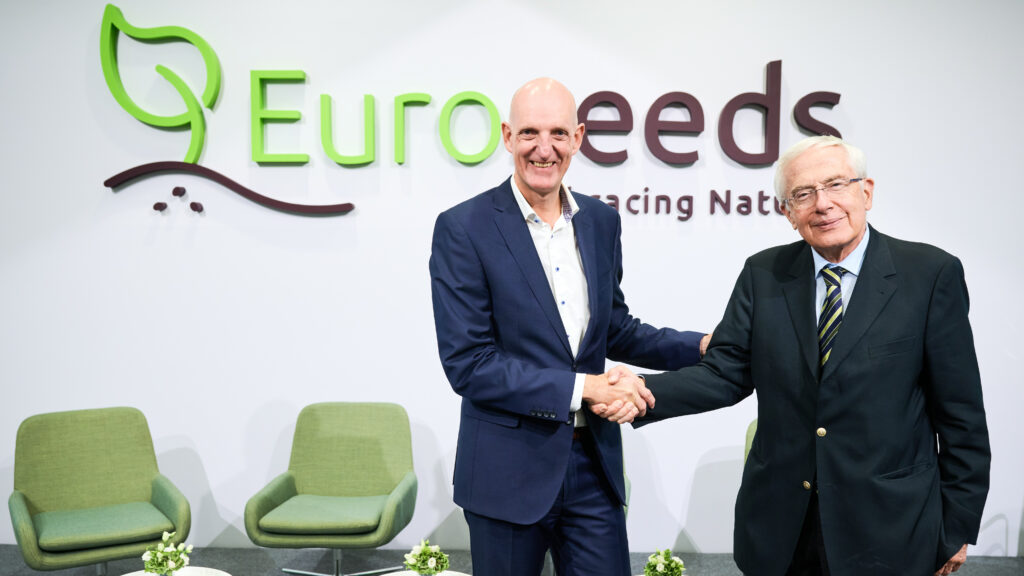
Every two years, the Euroseeds Congress hosts the Best Student Award of the European Plant Breeding Academy, University of California, Davis. The 2024 recipient of this honor is Mark van Gerwen from Bejo, demonstrating exceptional promise in the field of plant breeding and genetics.
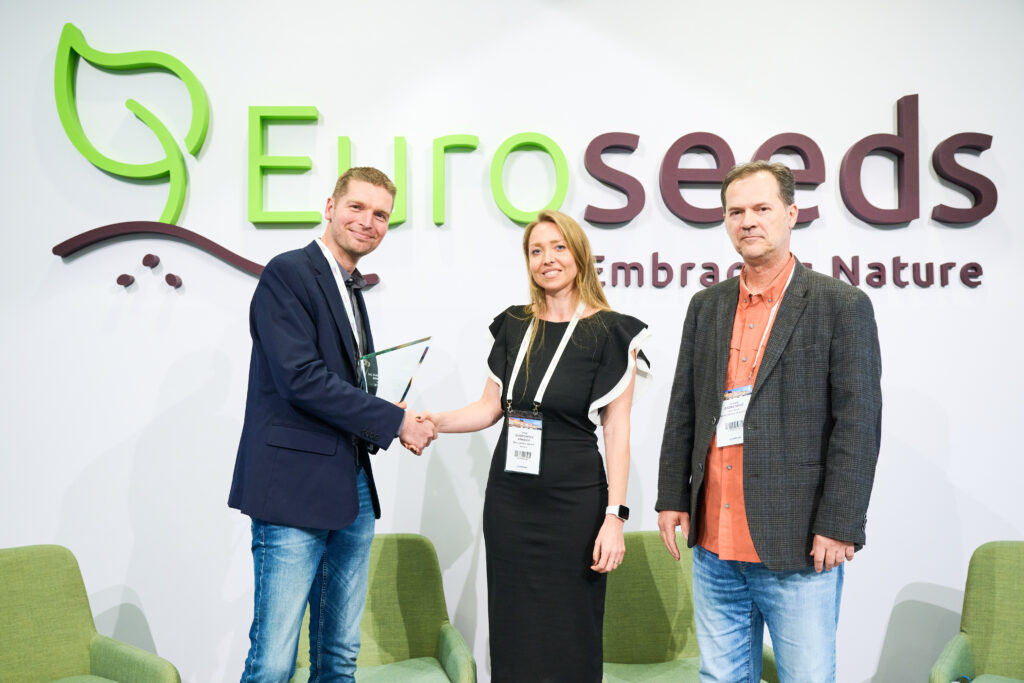

As for the latest addition to the Euroseeds congress, the #InnovActionStage showcased 12 ground-breaking technologies developed for a wide range of breeding solutions: mobile cell analysis solutions, machine learning, AI, CRISPR, gene editing, 3D phenotyping and more.
The InnovActor 2024 Award was a major highlight, with Healthycrop crowned the winner for its groundbreaking contributions to plant breeding innovation, with Amphasys and SMARTtray® as notable runners-up. Moderated by Shawn Brook, Director of Seed World Group, the ceremony award started with a speech from Alec Asbridge, Senior Director at EY-Parthenon, who hilighted the importance of innovation and agricultural technologies in the value chain and the farming community. The congress concluded with a panel discussion featuring the winner, the finalists and our panellists, reflecting on the role of innovation in agriculture and its future trajectory.
The competition has been supported by Ernst and Young and Agro Innovation Lab.

The Euroseeds Congress will return in April 2025 in Edinburgh, Scotland, from 19 – 22 October 2025!
